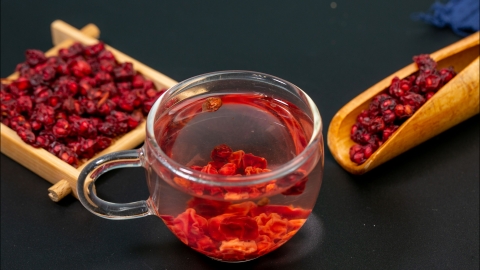What are the side effects of Schisandra?
Generally, Schisandra (Schisandrae Fructus) is an astringent traditional Chinese medicine that functions to consolidate and astringe, invigorate qi and promote body fluid production, as well as nourish the kidneys and calm the mind. Possible side effects may include gastrointestinal discomfort, oral odor, allergic reactions, nervous excitement with insomnia, and arrhythmia. Detailed analysis is as follows:

1. Gastrointestinal Discomfort
Schisandra contains various organic acids, such as citric acid and malic acid. These components may irritate the gastrointestinal mucosa, affect normal intestinal peristalsis and digestive function, leading to gastrointestinal discomfort, such as nausea and abdominal distension.
2. Oral Odor
Schisandra itself has a unique taste. After administration, its components may remain in the mouth. Additionally, substances contained in Schisandra may produce certain metabolites with a distinct odor during metabolism in the body, which are exhaled through respiration, thereby causing oral odor.
3. Allergic Reaction
Some individuals may be allergic to certain components of Schisandra. The immune system may recognize these components as foreign antigens, triggering an immune response that leads to allergic symptoms on the skin.
4. Excitement and Insomnia
Schisandra has a certain central nervous system stimulating effect and may affect the excitability of the nervous system, keeping the brain in a more active state. If taken at inappropriate times or in excessive doses, it may lead to excessive neural excitement, thus affecting sleep.
5. Arrhythmia
Components of Schisandra may affect the electrophysiological activity of the heart, interfering with the heart's normal rhythm. When used in high doses, it may cause changes in myocardial excitability and abnormalities in the conduction system, thereby inducing arrhythmia, which may be accompanied by symptoms such as palpitations, chest tightness, and dizziness.
During the use of Schisandra, it is essential to follow medical advice, pay attention to bodily reactions, and ensure safe medication use. At the same time, one should avoid consuming spicy, greasy, or other irritating foods. If discomfort occurs, discontinue the medication immediately and seek medical attention.







